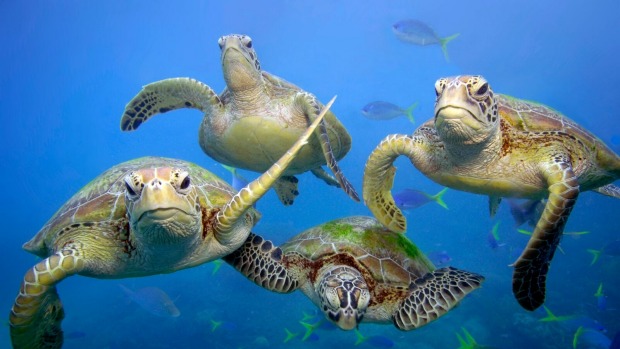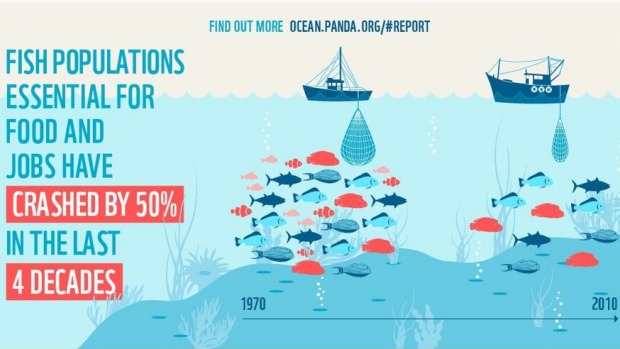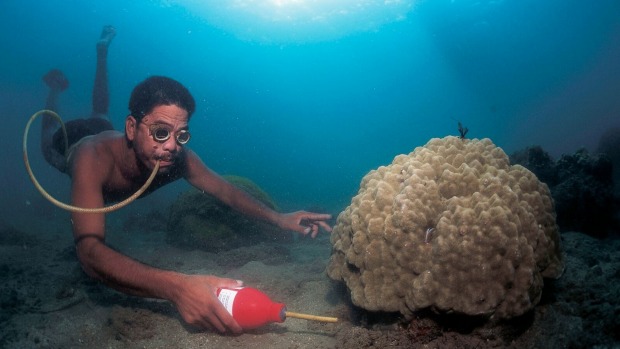World Wide Fund for Nature Says Nearly Half the World’s Marine Animals Wiped Out in Single Generation
ENVIRONMENT, 21 Sep 2015
Lucy Cormack – The Sydney Morning Herald
17 Sep 2015 – Humanity’s mismanagement of the ocean has led to the loss of almost half the world’s marine mammals, birds, reptiles and fish in a single generation, a World Wide Fund for Nature report says.
The emergency edition of WWF’s Living Blue Planet Report revealed a 49 per cent decline in marine vertebrate populations between 1970 and 2012. For some fish this figure was almost 75 per cent.
“Often that word ’emergency’ gets bandied about, but in this situation it really is an emergency,” said Richard Leck, marine program leader for WWF Australia.
“I work on these issues day-to-day, but to see the findings of this report in the space of a generation, it is truly stunning that we can have that level of impact in such a short period of time.”
Director General of WWF International Marco Lambertini described the situation as nothing short of a “crisis,” in his foreword to the report by WWF and the Royal Zoological Society of London.
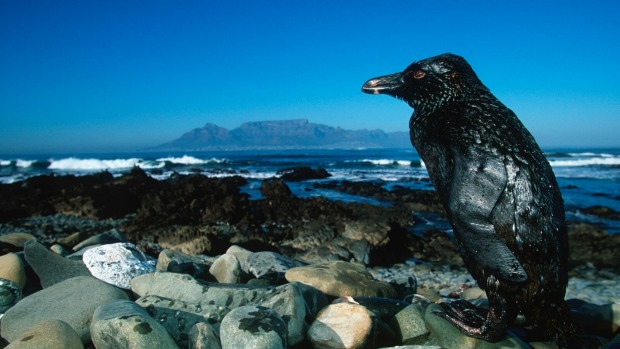
A Jackass Penguin covered in oil from an oil spill off the coast of South Africa’s Robben Island. Photo: Martin Harvey/WWF
“When I wrote the foreword to the 2014 edition of WWF’s Living Planet Report, I said it was not for the faint-hearted. This edition, a deep dive into the health of marine species and the habitats on which they depend, is equally if not more sobering.”
Tracking 5829 populations of 1234 species, the report gave a much broader overview of ocean health than previous studies.
It highlighted the impact of commercial fish stocks and the role the private sector must play in slowing rates of overfishing, suggesting that species essential to commercial fishing and global food supply were suffering the greatest declines.For example, scrombidae, the family which includes tunas, mackerels and bonitos, suffered a 74 per cent decline between 1970 and 2010.
“Overfishing, destruction of marine habitats and climate change have dire consequences for the entire human population, with the poorest communities that rely on the sea getting hit fastest and hardest,” said Dermot O’Gorman, CEO of WWF Australia.
He said the private sector had to carry the responsibility of ensuring sustainable practices and operations, noting Australian salmon company Tassal and retailer Coles for their commitment towards sustainability.
The supermarket giant’s 2015 sustainable sourcing policy for home brand canned tuna states it will “not source yellowfin, southern bluefin or bigeye tuna, all of which are overfished, or are in danger of being overfished,” however in late August the retailer was caught breaching the policy.
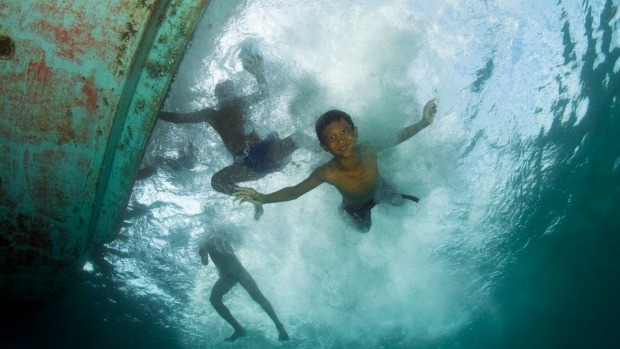
Men working on a reclamation scheme to build another exclusive hotel resort on what was formally sea bed in Dubai, UAE. Photo: Global Warming Image/WWF
Mr Leck said responsibility lies not only with the commercial fishing industry, but with governments across the globe.
“Globally I think oceans haven’t received the same level of conservation focus as other ecosystems,” he said, citing the Solomons, Papua New Guinea, the Philippines and Indonesia, where large populations depend on the oceans for their livelihoods.
“We’ve always thought of protected areas as an environmental measure and not a livelihood measure. But protecting these resources goes far beyond being environmental issue, it’s human welfare issue.”

Father and son fishermen in dugout canoe bringing in a net at sunset, Ohoidertutu Village, Kei Islands, Moluccas, Indonesia. Photo: Juergen Freund/WWF
Mr Leck said there was definitely optimism in the sector upon hearing the news of Malcolm Turnbull being sworn in as Prime Minister, as “one of his previous roles was as environment minister”.
“He has a very keen understanding of the serious environmental issues we face in Australia…I think we should definitely be hopeful and optimistic his government will again lead on environmental issues.”
ADDITION:
Since August Coles has updated its sustainability policy after working with our suppliers to source a certified sustainable yellowfin tuna for our customers.
“The environment in which fisheries operate is complex and ever-changing. The sustainability of fisheries can change as new management measures are introduced and better fishing techniques are adopted,” a Coles spokesperson said.
DISCLAIMER: The statements, views and opinions expressed in pieces republished here are solely those of the authors and do not necessarily represent those of TMS. In accordance with title 17 U.S.C. section 107, this material is distributed without profit to those who have expressed a prior interest in receiving the included information for research and educational purposes. TMS has no affiliation whatsoever with the originator of this article nor is TMS endorsed or sponsored by the originator. “GO TO ORIGINAL” links are provided as a convenience to our readers and allow for verification of authenticity. However, as originating pages are often updated by their originating host sites, the versions posted may not match the versions our readers view when clicking the “GO TO ORIGINAL” links. This site contains copyrighted material the use of which has not always been specifically authorized by the copyright owner. We are making such material available in our efforts to advance understanding of environmental, political, human rights, economic, democracy, scientific, and social justice issues, etc. We believe this constitutes a ‘fair use’ of any such copyrighted material as provided for in section 107 of the US Copyright Law. In accordance with Title 17 U.S.C. Section 107, the material on this site is distributed without profit to those who have expressed a prior interest in receiving the included information for research and educational purposes. For more information go to: http://www.law.cornell.edu/uscode/17/107.shtml. If you wish to use copyrighted material from this site for purposes of your own that go beyond ‘fair use’, you must obtain permission from the copyright owner.
